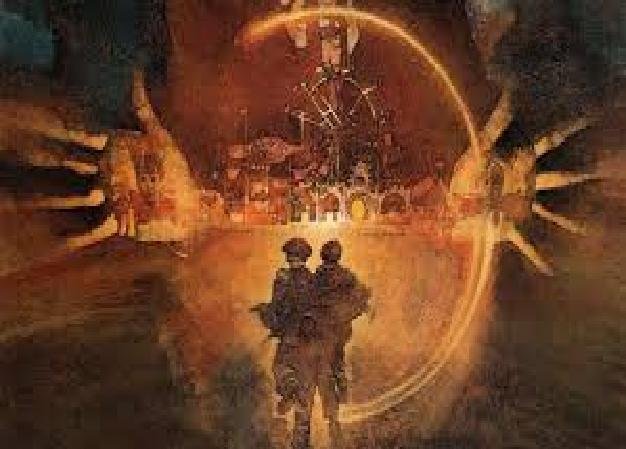
Some historians point out that this celebration focuses on the syncretism between the cult of the god Bacchus, the Roman god of wine, the Roman lupercals and the rite of the god of the bull Apis in Egypt. For this reason this party ends in drunkenness, lust and sacrifice. In addition they indicate the experts, that according to studies realized these pagan celebration, goes back to the one of the inhabitants of Sumeria and those of ancient Egypt, located in average East, formerly Mesopotamia (6.700 - 6.500 AEC). So it has to do with the cults that appear in the Bible to the different idols, in that same area and at that same time, performing rituals, and where the people of Israel got involved by sacrificing their own children, bringing with it, the God's wrath.
The carnival extended to several places in Europe and in each of the countries where they celebrate it, they added their customs and beliefs. Then, many centuries later, it was introduced in America, especially in the south, taking on nuances typical of the area and with a god imported by the colonists called King Momo (god of derision and ridicule).
It should be noted that one of the outstanding elements used in the party is the disguise, it is maintained from antiquity to hide the identity in the midst of debauchery.
Many times we do not stop to think that when we celebrate this party we become partakers of all that it means. Participants when we disguise or disguise our children and participants when we share in social gatherings alluding to these parties, such as comparsas or caravans.
The main reason for this study is to focus on how the things we do by tradition and most of the time naively, bring consequences in the spiritual world that surrounds us, without realizing that through our actions we can bring a curse to our lives and surroundings. </ div>
God warns us:
You can not drink the cup of the Lord; and the cup of demons; you can not partake of the table of the Lord, and of the table of demons "</ center>

Algunos historiadores señalan que esta celebración enfoca el sincretismo entre el culto al dios Baco, el dios romano del vino, las lupercales romanas y el rito al dios del toro Apis en Egipto. Por tal razón esta fiesta termina en borracheras, lujurias y sacrificios. Además señalan los expertos, que según estudios realizados estas fiesta pagana, se remonta a la de los habitantes de Sumeria y los de Egipto antiguo, ubicados en oriente medio, antiguamente Mesopotamia (6.700 – 6.500 AEC). Por tanto tiene que ver con los cultos que aparecen en la Biblia a los distintos ídolos, en esa misma zona y en ese mismo tiempo, realizando rituales, y donde el pueblo de Israel se involucró sacrificando a sus propios niños, trayendo por ello, la ira de Dios.
El carnaval se extendió por varios lugares de Europa y en cada uno de los países donde lo celebran fueron añadiendo sus costumbres y creencias. Luego, muchos siglos después, se introduce en América, sobre todo en el sur, tomando matices propios de la zona y con un dios importado por los colonos llamado rey Momo (dios del escarnio y la burla).
Cabe destacar que uno de los elementos resaltantes empleados en la fiesta es el disfraz, el mismo se mantiene desde la antigüedad para ocultar la identidad en medio del desenfreno.
Muchas veces no nos detenemos a pensar que cuando celebramos esta fiesta nos hacemos partícipes de todo lo que ella significa. Partícipes cuando nos disfrazamos o disfrazamos a nuestros hijos y partícipes cuando compartimos en reuniones sociales alusivas a estas fiestas, tales como comparsas o caravanas .
La razón primordial de este estudio, es enfocar cómo las cosas que hacemos por tradición y la mayoría de las veces ingenuamente, traen consecuencias en el mundo espiritual que nos rodea, sin darnos cuenta que a través de nuestros actos podemos traer maldición a nuestras vidas y entorno.
Dios nos advierte:
No podéis beber la copa del Señor; y la copa de los demonios; no podéis participar de la mesa del Señor, y de la mesa de los demonios”
Atentamente,
Rosa Elena Rodríguez
@ Trigalita
Datos Bibliográficos:
La Historia secreta de los Sumerios
PUBLICADO EN DOCUMENTALES, MISTERIOS Y COMPLOTS, 7 AGOSTO, 2013
http://www.expresionbinaria.com/la-historia-secreta-de-los-sumerios/
Wikipedia,
https://es.wikipedia.org/wiki/Carnaval
Rosa Elena, un gusto leerte, mi bella hermana. Qué buen contenido. Del Trigal tenías que ser. Les recuerdo con mucho amor :-)
Hola mi amada hermana, que el Señor te bendiga grandemente. Espero que las niñas y el pastor Francisco estén bien, los recordamos con mucho amor. Abrazos y besos a todos.